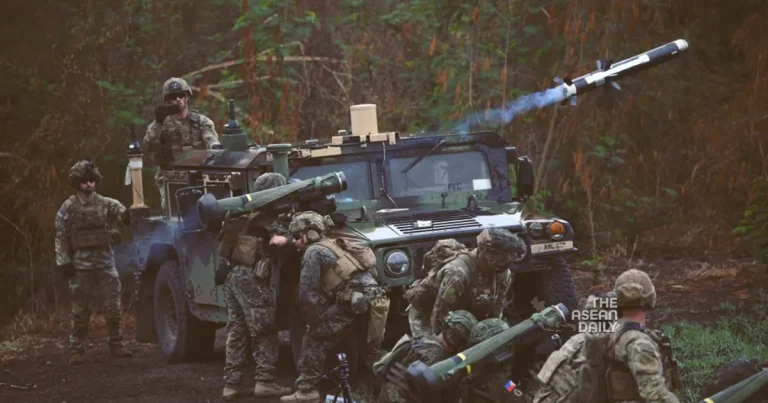27-10-2023 (MANILA) The defense secretaries of the Philippines and the United States (US) have emphasized that the Mutual Defense Treaty applies to both countries in the Pacific region. In a joint statement released on Friday, the defense chiefs reaffirmed the US’s unwavering support for the Philippines following a recent incident in the West Philippine Sea involving China.
The disagreement arose on Sunday when the Philippines lodged a protest against China for engaging in risky actions with two Chinese Coast Guard vessels in the West Philippine Sea. The incident occurred while a resupply mission was taking place at Ayungin Shoal, involving the aforementioned Chinese vessels, a Philippine Coast Guard vessel, and a supply vessel contracted by the Armed Forces of the Philippines (AFP).
“The Secretaries reaffirmed that the Mutual Defense Treaty extends to both countries’ public vessels, aircraft, and armed forces—including the Coast Guard—in the Pacific, which includes the South China Sea,” the statement declared.
Furthermore, the joint statement highlighted the commitment of both defense secretaries to intensify efforts in bolstering bilateral coordination, interoperability, and support for the modernization of the Armed Forces of the Philippines.
Echoing this sentiment, US President Joe Biden expressed on Thursday that his country’s defense commitment to the Philippines remains “ironclad.” The United States has been actively challenging China’s territorial claims by conducting increased military operations and strengthening its naval presence in the area. Moreover, the US has been providing enhanced support to its Southeast Asian allies, such as the Philippines.
The Mutual Defense Treaty, signed by the United States and the Philippines in 1951, stipulates that any attack on either party in the Pacific region would trigger mutual defense and assistance. This treaty has served as a cornerstone of the security alliance between the two nations, solidifying their commitment to each other’s defense in the face of external threats.




